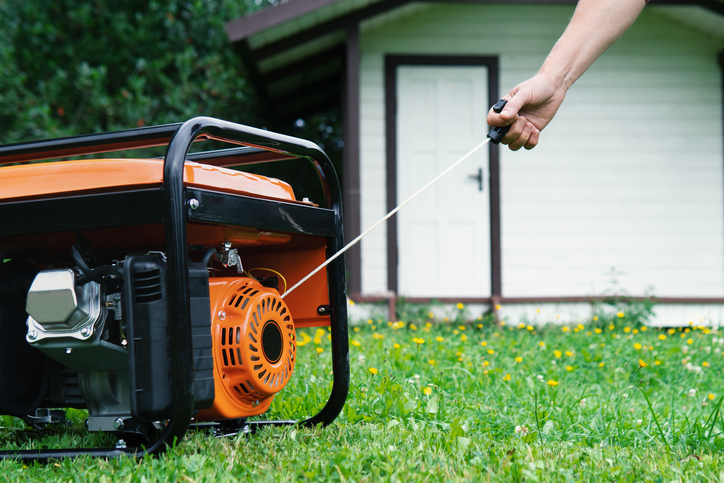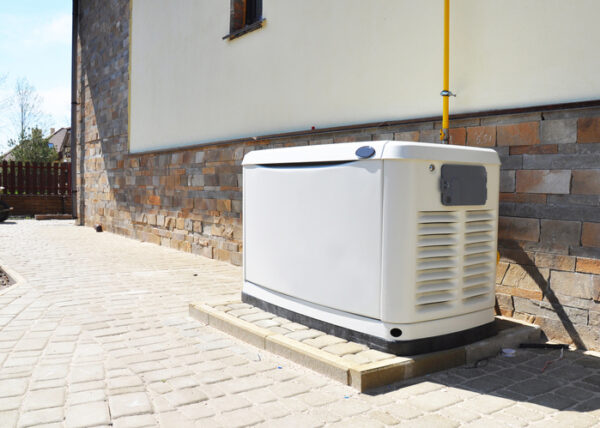
When it comes to New Orleans area homes, many people have questions about generators. Portable or whole-home generators can be essential for riding out a hurricane and the time without power. Take a peek at some basic generator knowledge to keep you safe and see what works best for you!
Portable Generators
First things first, NEVER run a portable generator indoors. EVER. This is the best way to give yourself carbon monoxide poisoning and die. Second, most power companies will ask that you do not hook your portable generator up directly to your electrical panel.
Portable generators should have at least 5 feet of clearance on all sides, including above. Ideally, they are 20 feet from your (and your neighbor’s) home. Please do not leave them running in enclosed spaces or near open windows. (Carbon monoxide issues!)
PRO TIP: Have carbon monoxide detectors in your home to ensure no danger of carbon monoxide poisoning from your generator.
Before starting your generator, you should check your gas and oil levels. Only run your generator on a level surface as well. Next, calculate the wattage before you start plugging things into your portable generator. You can’t just load your entire house onto a tiny generator! Staggering the use of certain appliances will help to keep the generator from overloading.
MUST HAVE: heavy-duty, long extension cords will be essential!
Extra notes about portable generator use:
- Please do not use the generator in the rain & do not use it with wet hands!
- To refuel, you must let the generator cool off completely before adding more.
- If your carbon monoxide detectors go off, open windows and get out of the space immediately.
- Most generators provide you with 7 – 9 hours of use. Be prepared to refill it!
Portable Generator Maintenance
These portable generators also need maintenance, so they work the next time you need them!
- After each use, you should change the gas.
- Check the air filter for dust weekly. (At least monthly!)
- Monthly, you start the generator up and test it for 30 minutes.
- Consider bringing it to a pro yearly for a tune-up. They will check drive belts, pulleys, and hoses.
Make sure you have extra oil on hand during hurricane season. As many generators need the oil changed every 50-200 hours of use, it’s easy for that time to accumulate when you’re without power for a week!

Whole Home Generators
A whole home generator will automatically kick on and restore power to your entire home in a matter of moments. Most of these will be connected by natural gas lines in the New Orleans area. Every parish has different requirements on how and where they can be installed. -so be sure to discuss with your installer before proceeding. If the generator is not installed by the parish and manufacturer standards, should something happen and it causes a fire, you’re unlikely to be paid by your insurance company.
These whole home generators come in many different sizes too. The size you need to run an entire home depends on your house size. Your generator installer will discuss with you the wattage required for your home.
NOTE: Whole home generators still need maintenance. Talk to your installer about what they require!
How much do they cost?
The national average is $15,000 for a whole home generator and installation.
Jefferson Parish Generator Requirements
Orleans Parish Information (There was little information to follow from Orleans Parish. Based on research, you will need a licensed electrician and potentially a building permit)
St. Tammany Generator Requirements
Want to find a home with a whole home generator? Start by messaging us!
Contact Team Be New Orleans
